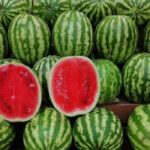[tta_listen_btn listen_text=”Audio” pause_text=”Pause” resume_text=”Resume” replay_text=”Replay”]
NEW European Union pest control rules will cut South Africa’s orange exports to Europe by 20% this year, threatening thousands of jobs, the Citrus Growers Association (CGA) has said.
The new measures imposed by the EU last June require enhanced cold treatment for citrus exports due to concerns over False Codling Moth, a pest commonly found in sub-Saharan Africa, and Citrus Black Spot.
“Current estimates are that around 20% of oranges produced for Europe will not be shipped this year because of the new regulations,” CGA president Justin Chadwick said in a statement.
“This means that approximately 80,000 tons of oranges might not make it to European supermarket shelves,” he said.
South Africa is the world’s second-largest citrus exporter after Spain and sold 32% of its oranges into the European market last year, according to the country’s Perishable Products Export Control Board.
The CGA wants South Africa to discuss the new pest regulations at a joint meeting of African Union and EU agriculture ministers to be held in Rome on June 30.
Chadwick said the new EU rules, which require all South African oranges destined for Europe to be pre-cooled to below 2 degrees Celsius (35.6°F) for 20 days before shipment was “unfair and discriminatory” and would require a $75 million investment in new cold storage technology and capacity.
“The CGA remains of the view that the new regulations have no basis in science and prescribes cold treatment that simply isn’t warranted,” Chadwick said.
The industry has presented “clear evidence” that its current False Codling Moth risk management system is highly effective and ensures that 99.9% of oranges entering the EU are pest free, he added.
Reduced orange exports into the EU market would result in a 500 million rand ($26.83 million) loss to growers, who lost 200 million rand when the rules were introduced midway through the 2022 export season, according to the CGA.














